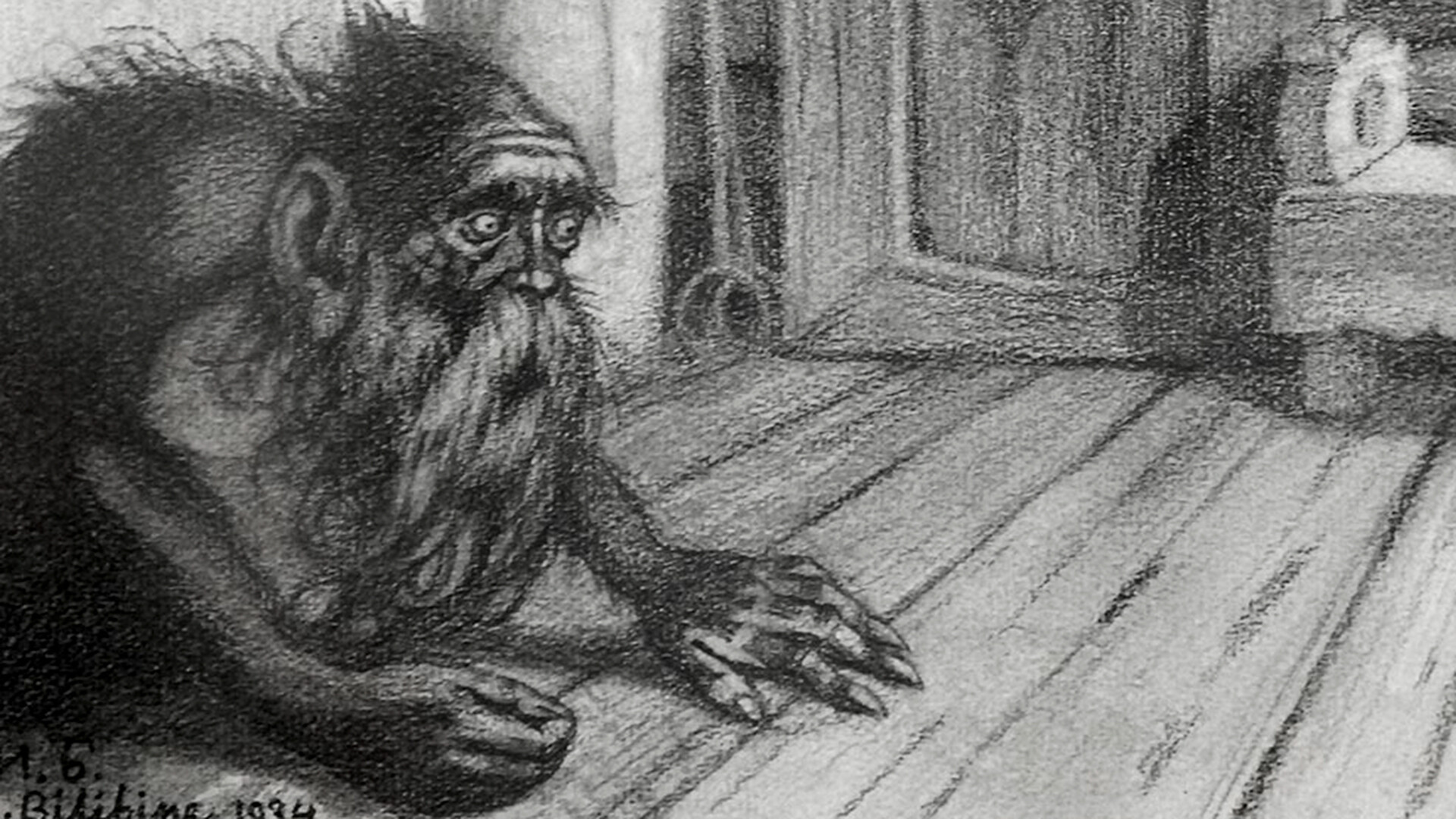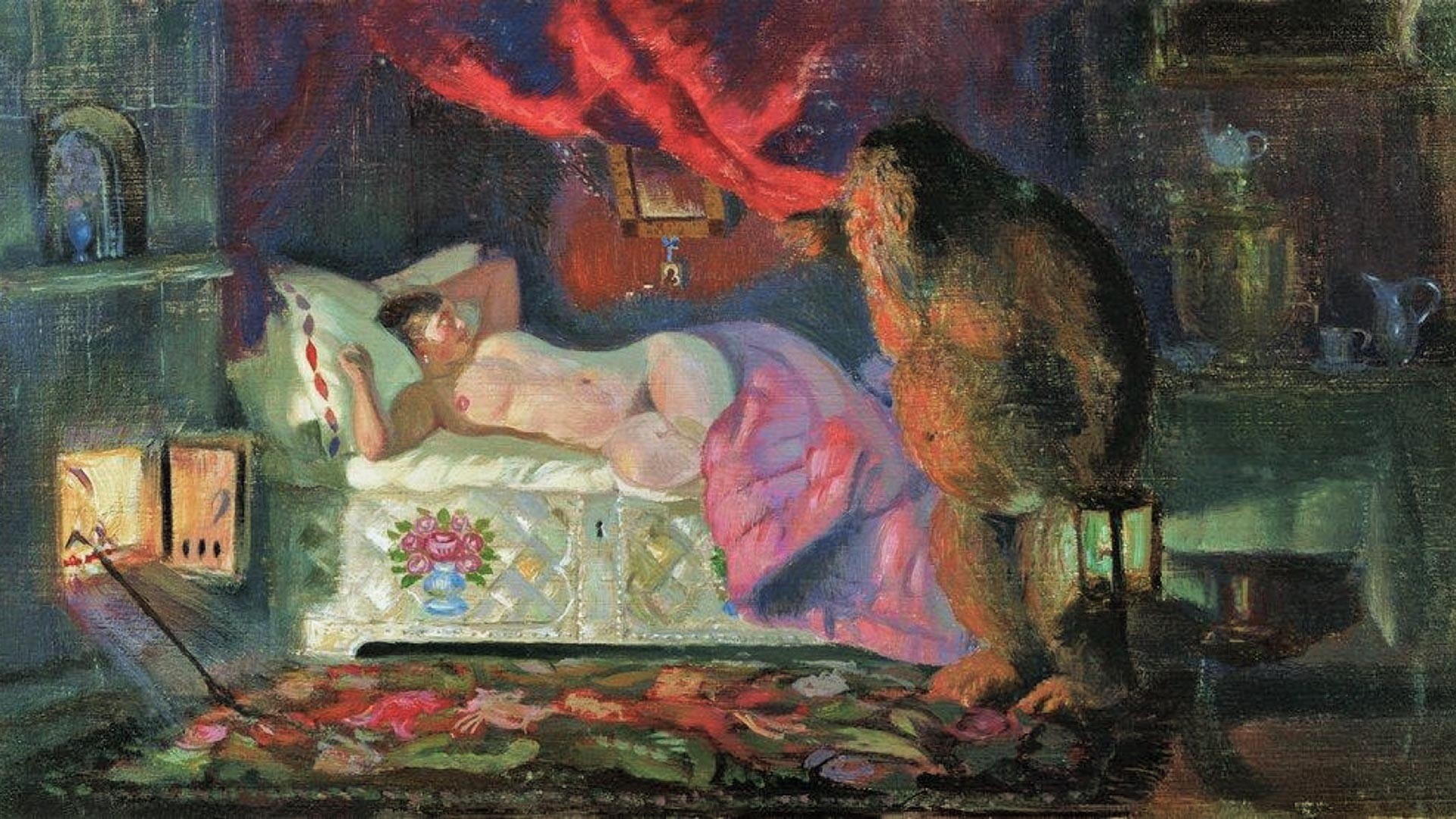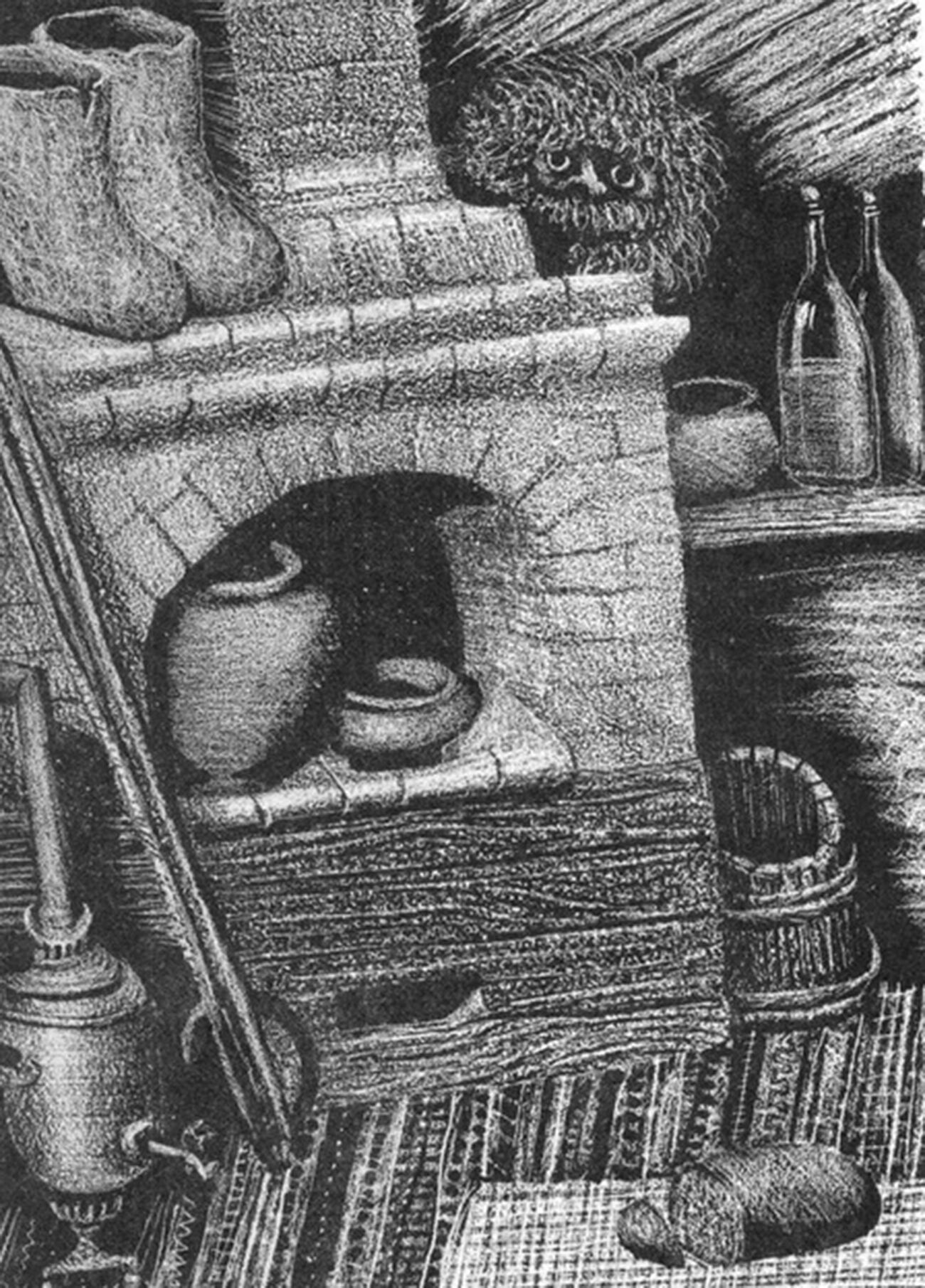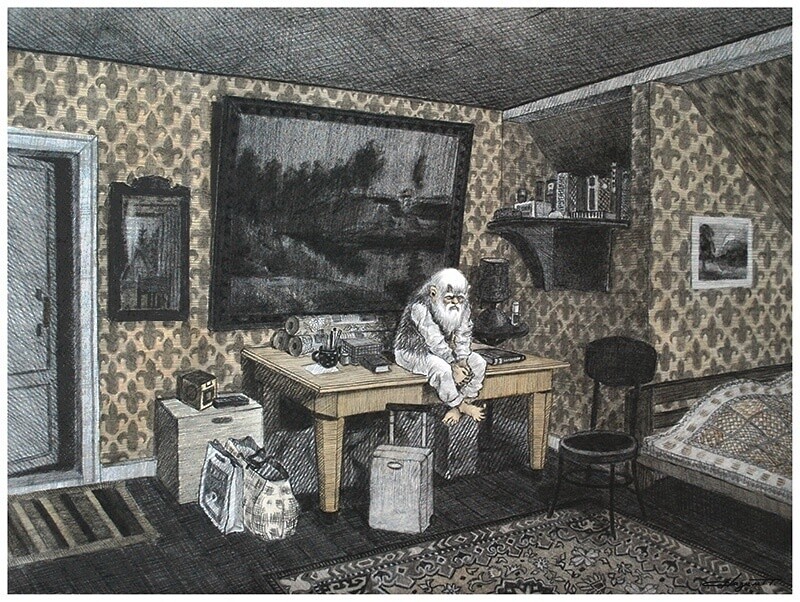Meet domovoy, the Russian home spirit (IMAGES)

From the ancient times to the present day, most Russians still honor the domovoy with one popular superstition. If Russians are planning to leave their home for considerable time, the last thing they will do before stepping out the door is take a short seat “for the road”. The Russians of old did this to appease the domovoy, the house spirit or ghost.
They believed that the domovoy gets very upset if the house dwellers leave abruptly, so by sitting “for the road”, Russians paid due respect to their house guardian. What are the main features of a domovoy?
What does a domovoy do?
 "A woman and a domovoy," by Boris Kustodiev
"A woman and a domovoy," by Boris Kustodiev
In Russian folklore, a domovoy cares about its kin and helps around the house. It is its chore to keep the fire in the stove burning, to keep the grain and flour dry. In Russian villages, the domovoy was also believed to have tended to cattle, combing the horses’ manes and soothing the cattle during the night – that’s why the barn is also a place where a domovoy can reside. The domovoy is often asked to take care of the cattle in the spring before the first pasture and in the fall.
One of the main features of the domovoy is its ability to predict dangerous events – if something bad is coming, the domovoy will show itself. It will make some racket, howl like wind, throw things around the house or appear in the form of somebody from the family.
It is the ultimate ancestor
Ethnographers are unanimous that domovoy is a pre-Christian creature of Russian folklore. As home spirits in many cultures, a deceased family member, the first ancestor of the genus, was considered a domovoy. This said, domovoy is not a ‘brownie’, not some imp-like creature, but a powerful home entity.
It is rarely seen
As the main house spirit, the domovoy is rarely seen in the flesh and, when it is, it can take the form of the house’s owner or of an ancestor – just an old man with a beard. Russians believe that seeing yourself is seeing a domovoy in your “form” and it is a very bad omen that predicts illness or death. A domovoy usually appears to warn about some grim or dangerous event coming.
It 'lives' in closed, dark areas and corners

Behind or under the stove, in the attic, under the door threshold – these are the places a domovoy likes to live in, according to Russian rural beliefs. A domovoy doesn’t like to be bothered, because it has a lot of chores around the house.
How can a domovoy be invited to a house?
Russians who live in the villages believe that a house can’t stand without a domovoy. So, when it’s time to move to another place, there was a tradition of “bringing” the domovoy along. When a peasant family moved from old house to a new one, the domovoy had to be “carried” in an old lapti slipper, on a broom or in a shovel with burning coals.
To invite a domovoy to a freshly built house, some “sacrifices” for it were usually prepared – a tradition going back to the ancient builders’ rites, when builders used to sacrifice a living creature (a goat or some poultry) before building the house.
What makes a domovoy angry?
 "Domovoy. The night before the owners leave" by Pavel Nazim
"Domovoy. The night before the owners leave" by Pavel Nazim
Any uncleanliness in the house, lots of swearing, quarrels and rows between the members of the family – all of this makes a domovoy angry. Sleeping without underwear, leaving the house with your hair uncovered (only for women), working at night or going to bed without dinner – all of this displeases the home spirit and will make it throw things around, pull down your blanket at night and do all kinds of annoying things.
As we can see, the main “rules of conduct” with a domovoy suggest refraining from doing plainly stupid things or things that can be dangerous in the harsh conditions of the Russian climate (like going to bed without dinner). Just like with other folklore creatures, the belief in the domovoy served as an explanation of simple house rules understandable for small children – and, in this sense, the domovoy indeed provided a lot of help around the house!

